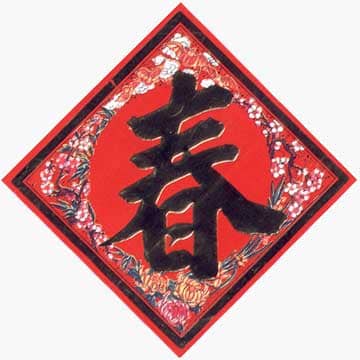 The History of China (From
1800-1905)
The History of China (From
1800-1905) 
 The History of China (From
1800-1905)
The History of China (From
1800-1905) 
by Joshua

![]()
The Qing Dynasty
During this time period, China was governed by the Qing dynasty, which was founded by the Jurchen or Manchu people. It was the last dynasty in China and reigned from 1644-1911. Unfortunately, the Qing were very autocratic and despotic rulers. They banished and persecuted many intellectuals. Eventually the dynasty failed when many new problems arose. The once glorious empire fell because of rampant corruption, a steady decentralization of power, rebellions, warfare overpopulation and natural disasters. This led to frequent poverty. China was becoming a semi-feudal and semi-colonized country. This and many other events caused a flood of foreign Chinese immigrants into various countries such as Canada.
The Opium War
Originally, opium was used for medicinal purposes such as cures for dysentery, cholera and other diseases when it was manufactured in China. Alarmed that opium was misused for smoking purposes and at the debilitating effect it produced, it was immediately banned and expelled. This ban didn't impact Britain who were gradually taking over the opium empire from it's European capitalist rivals, Portugal and Holland.
The Opium War of 1839-42 started when the Chinese imperial government confronted foreign merchant ships and demanded they surrender their illegal cargo. Capt. Elliot, superintendent of the British fleet, asked the Governor-General of India for as many ships as he could spare. He sent them to Hong Kong. Once they arrived, they protected the opium-carrying merchant vessels. Chinese junks sent by the emperor didn't stand a chance against the British warship. The wars waged on the Chinese people caused untold deaths and casualties. The British destroyed, plundered, looted and raped their way along the coast of China. This caused disunity and tension in China, giving rise to foreign Chinese immigrants.
The Boxer Rebellion
Throughout the nineteenth century, foreigners forced the Chinese to make humiliating concessions. Austria, France, Germany, Great Britain, Italy, Japan, and Russia declared a part of the trading industry in China and were taking advantage of the abundant resources of China. While the foreign powers fought over who would control China, Empress Dowager Tsu Hsi issued an imperial message throughout the Chinese provinces. It said:
"The present situation is becoming daily more difficult. The various Powers cast upon us looks of tiger-like voracity, hustling each other to be first to seize our innermost territories. . . . Should the strong enemies become aggressive and press us to consent to things we can never accept, we have no alternative but to rely upon the justice of our cause. . . . If our . . . hundreds of millions of inhabitants . . . would prove their loyalty to their emperor and love of their country, what is there to fear from any invader? Let us not think about making peace."
Responding to this address, the Boxers, who originated in the northern section of the Shangdong province, were formed from a secret society called Fists of Righteous Harmony and quickly attracted thousands of members. Their initial cause was to overthrow and revolt over the imperial Ch'ing government and expel the "foreign demons" from China. The shrewd empress made use of the Boxers and encouraged them. Initially, the Boxers terrorized the countryside attacking Christian missions and slaughtering overseas missionaries and Chinese converts. Gradually they moved towards the cities drawing many supporters. Foreign representatives fled from the Forbidden City and with a tiny defense force they fought the Boxers. After a long silence from the foreign troops the outside countries sent re-enforcements who besieged the fighting Boxers and imperial troops. The intercontinental troops plundered the capital and even ransacked the Forbidden City. Because of this rebellion which was originally caused by the international countries who manipulated the Chinese, China isolated itself from the rest of the world and many Chinese tried to look for opportunities to escape to the outside world causing a flood of immigrants to other countries.
The Opium Wars and Boxer Rebellion were some of the many wars that occurred during the time period of 1800-1900 which caused much disunity and instability. This instability caused the Chinese people to look for a better place to live. Many looked towards the country where the "Golden Mountain" was... North America.
For further information on why the Chinese immigrated,
please see our Immigration pages below:
![]()
Bibliography
![]()